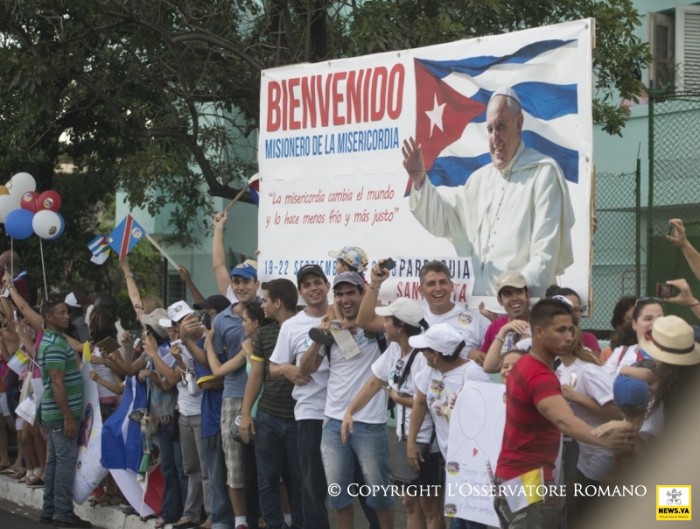Just over ten years ago, the European Union embassies in Cuba, including the United Kingdom, were involved in a stand-off with the Cuban government in Havana that became immortalised as “the cocktail wars”. Despite the seemingly frivolous impression given of the spat (which concerned the invitation to embassy receptions of dissident Cubans), there were deadly serious principles at stake. It was a dispute about freedom of speech, the right to disagree with your own government, and the right not to be imprisoned for your beliefs. And it led to over a year during which the Cuban government refused to engage with European diplomats based in Havana.
I was posted to the British Embassy in Cuba at the time. I had a dilemma. If I could not speak to Cuban officials – and almost all Cubans were employed by the state – with whom could I engage? One of the answers was the Catholic Church, and I got to know well many Cubans working for and with the Church as lay volunteers or in ministry in dioceses and parishes from Pinar del Rio in the west to Guantanamo in the east. The conditions in which they lived and worked were never easy, and often extremely tough. But I remember with great affection their enthusiasm, their welcome, and their firm gaze towards the future.
What I learned then has been reinforced by my impressions of the Pope’s visit now. That, outside the Communist Party, the Catholic Church in Cuba remains one of the few national institutions and networks to survive the 56 years of revolutionary government intact, despite severe persecutions and tight controls over its freedom of manoeuvre. That it retains credibility in a way that other national organisations, where they exist, do not. That it contains many brave and determined people, from dissidents to others who have made their accommodation with the regime without losing their faith. And that it will without doubt play a significant role in Cuba’s future.
That ten year old insight was one shared with the Holy See. It is no coincidence that successive Popes sent many of their best people to be diplomats in Havana. Nor that Cardinal Ortega, Archbishop of Havana, is the only Archbishop ever to have received visits in his diocese from three successive Popes (in 1998, 2012, and now 2015). The necessary process of reconciliation, of recovery and of rebuilding over the next decades in Cuba will be slow and difficult. But the Catholic Church will certainly play an important role in that process (as the Holy See did in the diplomatic rapprochement between the United States and Cuba last year). Pope Francis’ visit is another essential stepping stone on that journey.

